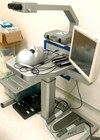If you don’t know your external TSCs from your OOPC/OOPT/OOPE/OOPR, then this article is for you.
Trainee selected components (TSC) are College-approved periods of training, usually ranging from six months to a year (formally ASTO) of intensive subspecialty training in one or two subspecialties with an aim to gain enough experience to apply for a further fellowship or consultant post. For various reasons, if you wish to obtain this experience in another deanery, it becomes an external TSC.
Organising an external TSC involves various moving parts. Your own deanery will have its prerequisites (i.e., all exams passed, all curriculum requirements being completed, etc.) prior to embarking on this. The receiving hospital should be a College-approved provider of your requested TSC and should have availability. TSCs no longer require approval from the College and are approved internally by the applicant’s deanery.
All applicants are usually required to interview for these posts after having made initial inquiries into availability. Also note that deaneries have local candidates that will take priority, and only unfilled TSC posts are advertised to external TSC candidates. Plan ahead by at least 18 to 24 months from the anticipated start date to ensure all internal and external requirements are met. Contact the lead consultant of the subspecialty TSC / post you’re applying for, asking if and when they anticipate any opportunities to arise. Copying in an updated CV with a subsection of relevant subspecialty experience is also useful (for example: phacos, trabs, tubes, laser numbers for a glaucoma job) or attach a summary of your surgical logbook. Do not be afraid to chase up inquiries as the recipients are usually inundated with requests like this, along with admin of their own, and your initial inquiry is quickly forgotten. Use your network of contacts to find out more about the job from the current fellow / trainee. It is also worth noting when interview dates will be, in order to include them in your planning.
Trainees have the option to take time out of training at any point during their specialist training. This could be for a myriad of reasons. Should you wish to take time out for personal reasons, this would be categorised as out of programme career break (OOPC). If you wish to take time out for clinical experience this is classed as out of programme clinical experience (OOPE). Discuss your intentions with your clinical supervisors, then educational supervisor followed by your training programme director.
If you wish for experience to count towards training time, applicants should apply for out of programme training (OOPT). The latter generally involves more planning, as prospective General Medical Council (GMC) approval should be obtained if the accepting hospital (local or abroad) is not on the GMC-approved list of programmes (available on the GMC website). Fortunately, most major UK eye hospitals are already included in this list.
Any time taken out of training for research would be classed as out of programme research (OOPR). Some of this time can be counted towards training if this has been negotiated with your deanery. Planning for OOPR can take up to a year, including networking and initial inquiries. So, plan ahead to make the necessary research contacts, project proposals etc. Research posts also usually involve an interview process. Again, approaching your local research lead in your area of interest is a good first point of contact, followed by contacting the research lead in the unit you’re considering applying to.
Furthermore, acting up as a consultant (AUC) is another period of time that can count towards your training which can be arranged within your deanery or externally, in which case the due out of programme application process needs to be carried out.
For all of the above, a timely initial chat with your educational supervisor to show your intentions and to also receive some guidance on where to focus your efforts, followed by a chat with your training programme director or head of school (usually in that order) is invaluable, so that early plans can be made, and rota gaps can be accommodated for. Your request is usually formalised at your next Annual Review of Competency Progression (ARCP). The postgraduate dean needs to sign off on all out of programme activities. In my experience, this was organised by the deanery and did not involve any direct communication with the dean. Therefore, if you have intentions to pursue out of programme activity, inform all the involved parties as early as possible. All applications can take a few months to be approved, and also don’t forget your notice period for your current employer (usually three months).
Having personally applied for OOPC and OOPT, I can highly recommend utilising these opportunities that exist within our training programme to maximise personal and professional growth.
COMMENTS ARE WELCOME











